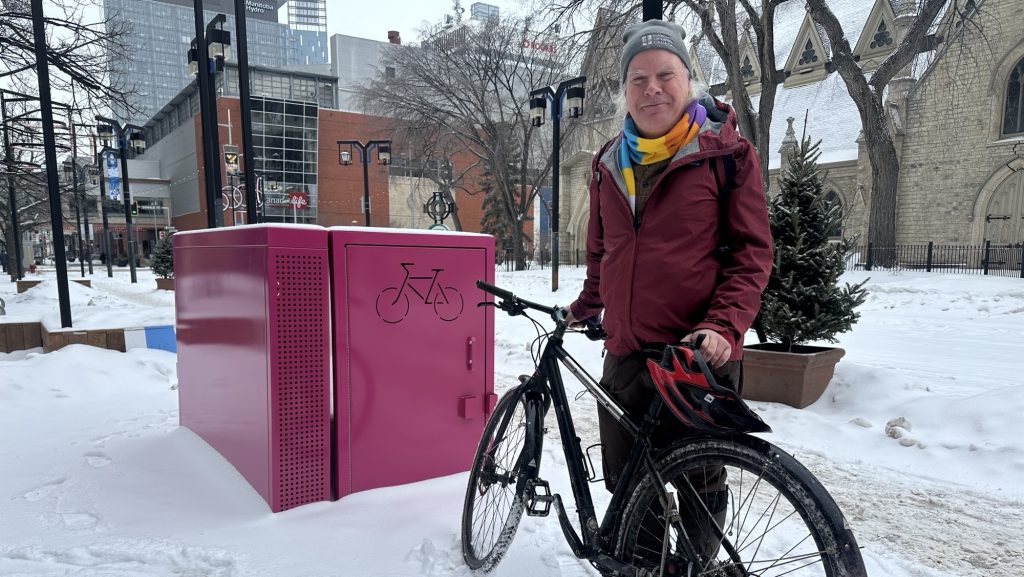B.C. could see $69B cumulative loss, lose 124,000 jobs with U.S. tariffs: Eby

Posted January 16, 2025 9:07 am.
Last Updated January 16, 2025 1:03 pm.
If United States president-elect Donald Trump comes good on his tariff threats against Canada, British Columbia could see devastating consequences.
Following this week’s premiers meeting with Prime Minister Justin Trudeau, where the potential U.S. tariffs threats were at the top of the agenda, B.C.’s premier and finance minister discussed the issue at a news conference on Thursday morning.
Premier David Eby began by saying that Trump has made “repeated declarations of economic war on Canada and British Columbia.”
“This is a challenging thing. It is a serious threat, and we want to share with you our best information about what this threat means for British Columbians, in the context of a larger threat to our country of Canada,” Eby explained.
“We know this will affect American families. It’s going to increase their costs. It’s going to make life more difficult for them, and it’s going to cost them jobs. But as the premier of British Columbia, I also want you to know how this will affect our province and what our province is doing to respond to that threat.
“The minister of finance and her team have been working since Nov. 25 when the threat was first made on the president[-elect]’s Truth Social network to analyze how this will affect us and ensure that we are prepared as a province to respond comprehensively, effectively and protect you and your families from this economic threat,” he stated.
B.C. could see loss of $69B between 2025-26 with 25% tariff: Minister of finance
Brenda Bailey, the province’s minister of finance, shared that tariff’s would be “unprecedented” in modern times, “which makes forecasting for such scenarios challenging.”
Bailey explained that the ministry’s modeling assumed a 25 per cent tariff for the entirety of Trump’s presidency, and the assumption that Canada would retaliate with a similar level of tariffs.
“This assessment should be interpreted as one of many possibilities, as there’s a great deal of uncertainty regarding the exact nature of the U.S. policies that may actually be implemented. The sources of uncertainty includes the amount and scope of potential tariffs, the timing of announcement and implementation, whether other jurisdictions retaliate with tariffs of their own,” she explained.
B.C. is a small, open economy, Bailey said, sending approximately 54 per cent of its total merchandise exports to the U.S. in 2023, with the remaining exports sent to China, Japan, and other nations.
“Wood, pulp and paper, metallic minerals, and energy products combined to make up around 67 per cent of total goods exported,” Bailey said. “Our key commodity exports are, of course, softwood lumber, copper, natural gas, and coal. Our trade diversity helps shelter the economy from us tariffs and enables the province to bolster trade with Asian markets. This is where B.C.’s trade diversification helps set us apart from the rest of Canada, who are much more dependent on the U.S. as an export destination.”
“For example, Alberta, Ontario, and Quebec send over 75 per cent of their goods exports to the U.S. However, the U.S. remains our largest trading partner, and the proposed tariffs would have significant impacts for B.C.’s economy,” she explained.
Bailey stated that the tariffs’ potential impact on B.C.’s GDP would be a slowdown of around 0.6 per cent year over year, in both 2025 and 2026.
“Over the long term, this represents a cumulative loss of around $69 billion between 2025 and 2026,” Bailey claimed.
Around 124,000 British Columbians could lose their job
The tariffs won’t just hit the province’s hip pocket, but affect British Columbian jobs, too, the minister explained.
According to modeling, it’s estimated that there would be around 124,000 fewer jobs in B.C., Bailey said.
“By 2028, job declines would be concentrated in export-oriented industries, in the natural resource sector, and associated manufacturing,” she explained.
“This would include forestry, wood manufacturing, paper manufacturing, metal manufacturing, as well as in mining and oil and gas extraction. There would also be job losses in transportation and retail sectors,” Bailey added.
Investment in B.C. businesses would also decline, and corporate profits are estimated to be $6.1 billion lower in 2025, and $3.6 billion lower by 2028.
“From a revenue perspective, a significant economic slowdown would affect many of the province’s key revenue streams. Our preliminary assessment shows that this could have an annual revenue impact … with the largest impacts expected for personal and corporate income tax,” Bailey said.
On Wednesday, Eby referred to the current situation as “economic wartime,” and indicated the province was prepared to back a federal response to the proposed 25 per cent levy.
Eby added that the nation’s premiers understand the “importance of unity,” and were ready to respond to Trump’s demands.
You can watch CityNews 24/7 live or listen live to 1130 NewsRadio Vancouver to keep up to date with this story. You can also subscribe to breaking news alerts sent directly to your inbox.
With files from Sonia Aslam.








